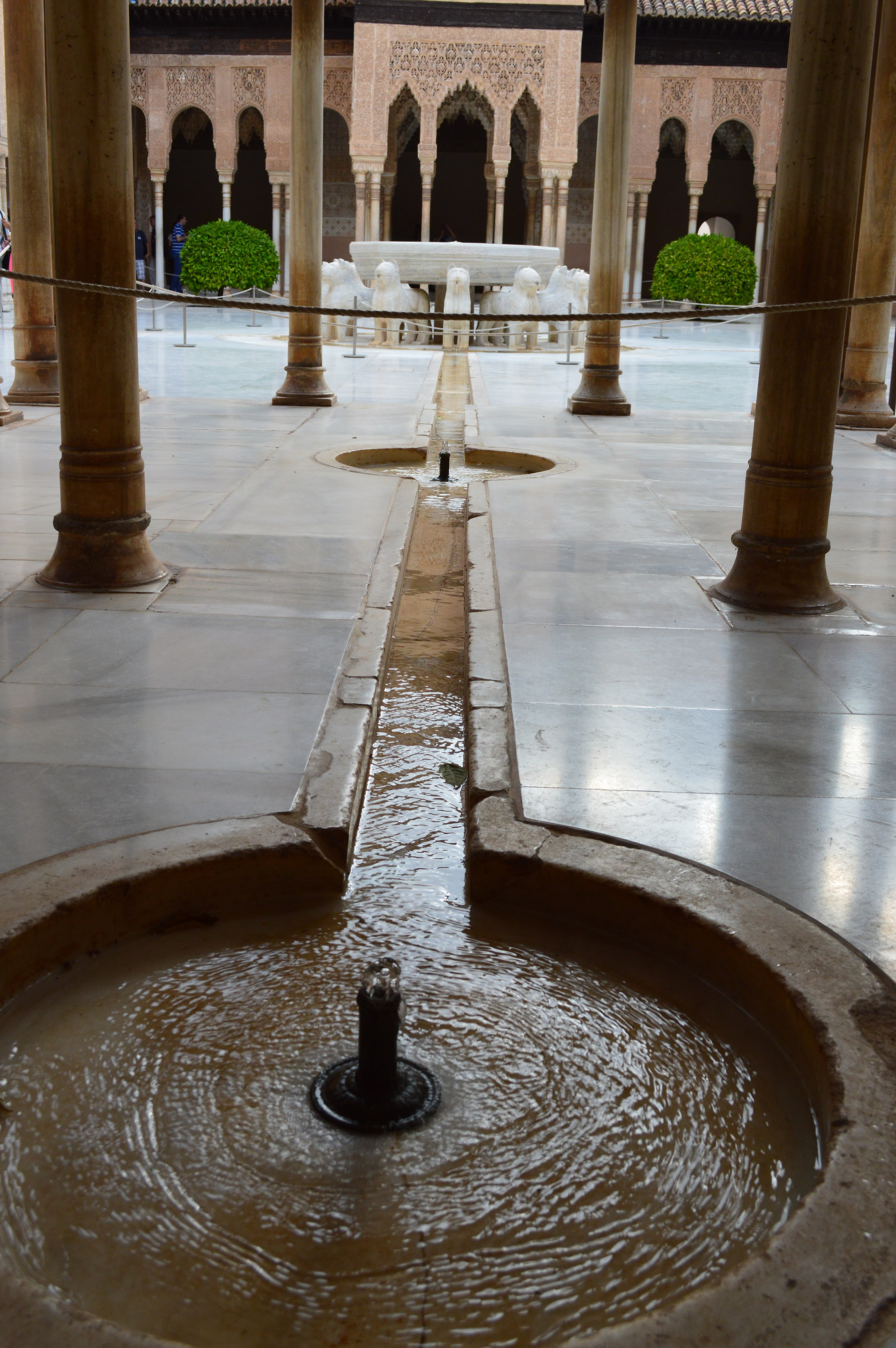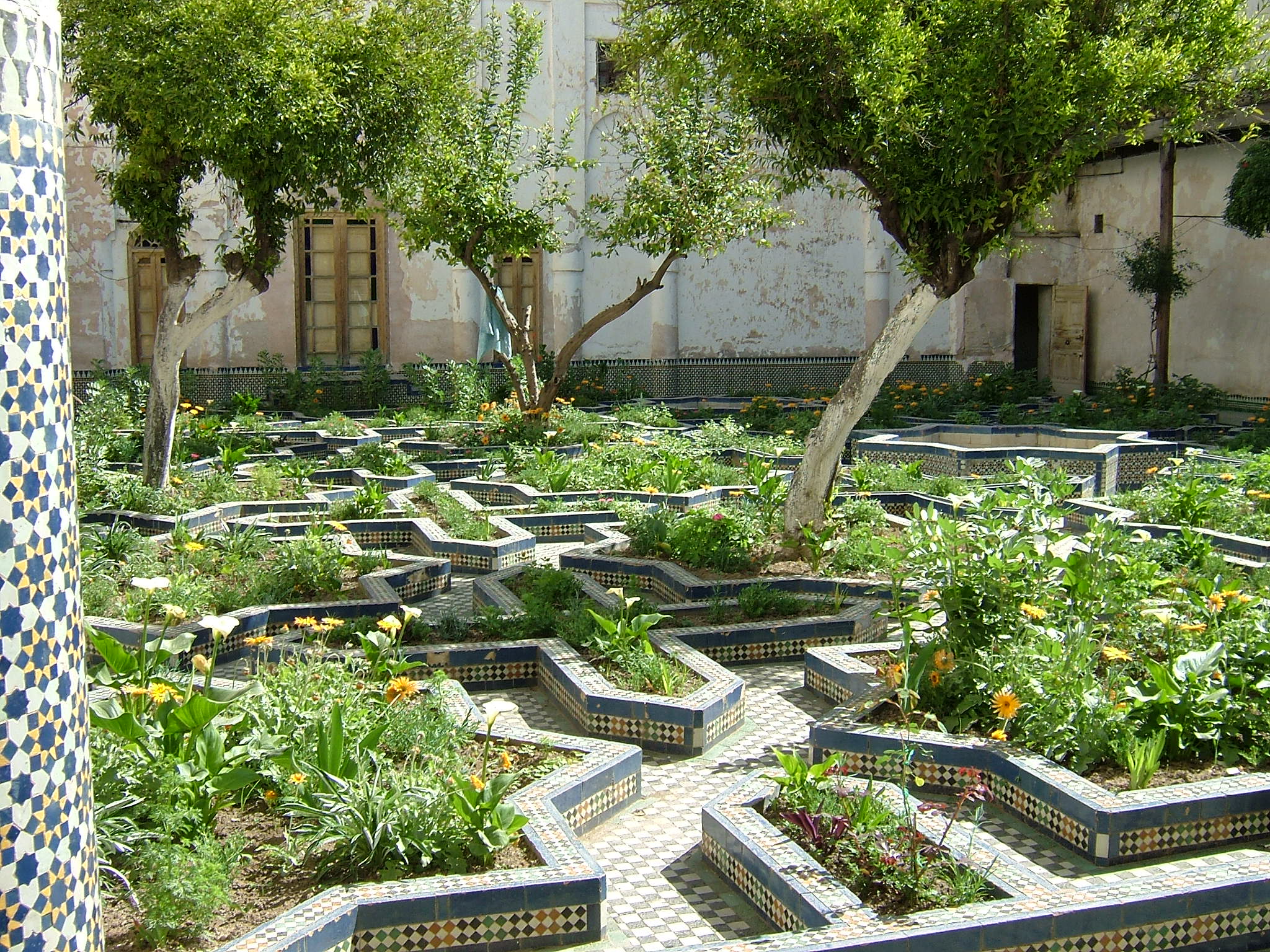Home » Events » Goldberg Lecturer to Examine Islamic Gardens as Fully Sensory Environments on March 30
Goldberg Lecturer to Examine Islamic Gardens as Fully Sensory Environments on March 30
Posted by vrcvanderbilt on Tuesday, March 15, 2016 in Events, HART, Lectures, VRC.
 “Islamic gardens were fully sensory environments, delighting the eyes, nose, ears,” described D. Fairchild Ruggles, an historian of Islamic art and architecture and professor of landscape architecture at the University of Illinois at Urbana-Champaign. “The fleeting sensations made by a fountain’s spray or the scent of a rose do not last in the body or in the garden—both living entities—but they leave traces in poetry, visual images, and architecture.”
“Islamic gardens were fully sensory environments, delighting the eyes, nose, ears,” described D. Fairchild Ruggles, an historian of Islamic art and architecture and professor of landscape architecture at the University of Illinois at Urbana-Champaign. “The fleeting sensations made by a fountain’s spray or the scent of a rose do not last in the body or in the garden—both living entities—but they leave traces in poetry, visual images, and architecture.”
Ruggles will deliver the Norman L. and Roselea J. Goldberg Lecture in Art History on Wednesday, March 30, at 4:10 p.m. in Cohen Hall 203 followed by a reception in the atrium. Her lecture is entitled “Beyond Vision: Embodied Senses in Islamic Gardens” in which she will explore how to study so ephemeral an art form as the garden.
Ruggles is the author of two award-winning books on gardens: Gardens, Landscape, and Vision in the Palaces of Islamic Spain (2000), and Islamic Gardens and Landscapes (2008). Her research examines the medieval landscape of Islamic Spain and South Asia and the complex interrelationship of Islamic culture with Christianity, Judaism, and Hinduism and the precise ways that religion and culture are often conflated in the study of these.
 Additionally she has edited or co-edited numerous works, including Women, Patronage, and Self-Representation in Islamic Societies (2000), the award-winning Sites Unseen: Landscape and Vision (2007), Cultural Heritage and Human Rights (2007), Intangible Heritage Embodied (2009), On Location (2012), and Islamic Art and Visual Culture: An Anthology of Sources (2011).
Additionally she has edited or co-edited numerous works, including Women, Patronage, and Self-Representation in Islamic Societies (2000), the award-winning Sites Unseen: Landscape and Vision (2007), Cultural Heritage and Human Rights (2007), Intangible Heritage Embodied (2009), On Location (2012), and Islamic Art and Visual Culture: An Anthology of Sources (2011).
Sponsored by the Department of History of Art, the Goldberg Lecture is free and open to the public. Parking is available in Lot 95 outside Cohen Hall, off 21st Avenue South on the Peabody campus and across from Medical Center East. For more information, call the department at 615.322.2831.
*The Alhambra, view of the Courtyard of the Lions and fountain basin, Granada, Spain (above); Courtyard in the Palace of Pasha ‘Abd al-Kari (also known as Dar al-Aman), Fez (below)
§§§
Ruggles will deliver a second lecture, “Water and the Transformation of the Early Islamic Landscape,” on Thursday, March 31, at 2:35 p.m. in Buttrick 101 on the Peabody campus. Free and open to the public, this lecture is sponsored by The Eos Project, an initiative to promote greater understanding of environmental issues through diverse disciplines and channels across Vanderbilt, and the Department of History of Art.
“Using an array of water technologies, early Islam transformed the desert in ways that stimulated the economy and produced not only new productive landscapes but gardens for pleasure,” said Ruggles. “But to understand how this happened, we must set aside the historical fascination with the four-part form of chahar bagh (literally, “four gardens”) as an expressive symbol, and instead look at gardens as environmental systems that served living societies.”

©2024 Vanderbilt University ·
Site Development: University Web Communications